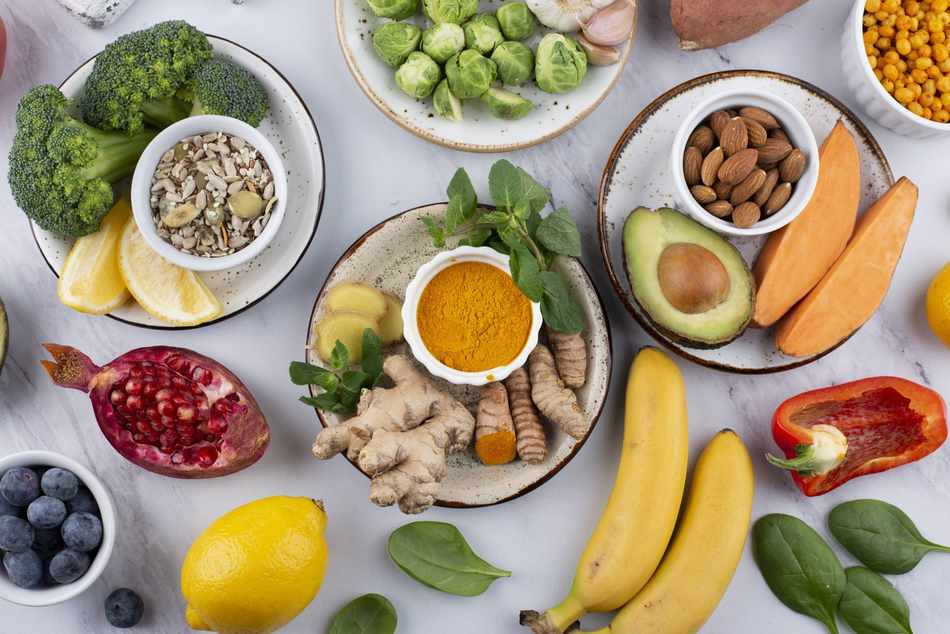Gut Microbiome & Mitochondria: What You Need to Know
- Aug 11, 2024
- 3 min read
Updated: Dec 7, 2025

The gut microbiome and mitochondria share a powerful, dynamic partnership that influences nearly every aspect of human health from energy production and metabolism to inflammation and longevity. Emerging research shows that nurturing this interconnected system through targeted nutrition can strengthen cellular function, support overall well-being, and enhance long-term vitality
Q1. What is the gut microbiome and why does it matter?
Your gut contains trillions of tiny microorganisms that help control digestion, immunity, and metabolism. They also communicate constantly with your mitochondria your body’s energy producers (1). When this system is out of balance, it can affect mood, energy, inflammation, and long-term health. Knowing how the gut and mitochondria work together helps you choose foods that nourish both. Small daily nutrition changes can strengthen your gut ecosystem and boost your overall vitality.
Q2. How do gut microbes talk to mitochondria?
Gut bacteria make special compounds called short-chain fatty acids (SCFAs). These act like messages that help regulate mitochondrial genes and energy processes (1). If SCFA-producing bacteria decline, your mitochondria can’t perform well affecting metabolism, immunity, and energy. Eating fibre-rich foods increases SCFAs, helping your mitochondria work better. Simple swaps like adding legumes, whole grains, or veggies can support this gut-mitochondria “conversation.”
Q3. How do gut microbes affect mitochondrial health?
Gut microbes produce metabolites like TMAO and bile acids, which influence mitochondrial membranes and energy production (2). Too much of the wrong metabolites or not enough beneficial ones can damage cellular energy, increasing fatigue and inflammation. Healthy gut bacteria also produce vitamins, amino acids, and SCFAs that feed and support mitochondria (2). Building a diverse, balanced gut microbiome is one of the strongest ways to protect your mitochondria.
Q4. What happens when the gut microbiome becomes imbalanced?
Dysbiosis (gut imbalance) disrupts mitochondrial biogenesis, oxidative stress control, and metabolism (3). This increases the risk of obesity, diabetes, cardiovascular disease, and chronic inflammation. Improving gut diversity helps regulate mitochondrial activity and stabilise metabolic pathways (3). With the right foods, your gut and mitochondria can recover and support long-term health.
Q5. What foods help strengthen the gut–mitochondria connection?
Many diets lack the fibres and nutrients gut bacteria need to produce SCFAs and beneficial metabolites (4). Without this support, gut function weakens and mitochondria become less efficient over time. Eat more plant-based fibres whole grains, legumes, fruits, veggies and fermented foods like yogurt, kefir, and kimchi (4). These foods help beneficial bacteria grow, increasing the compounds that power your mitochondria.
Q6. Do polyphenols support the gut and mitochondria?
A low-polyphenol diet limits your gut’s ability to produce anti-inflammatory metabolites (5). This may increase inflammation and reduce mitochondrial resilience. Polyphenol-rich foods (berries, green tea, dark chocolate) act like prebiotics, feeding good bacteria and supporting mitochondrial health (5). Even one daily serving of polyphenol-rich foods can improve gut balance.
Q7. How do omega-3 fatty acids help your gut and mitochondria?
Modern diets are often low in omega-3s, which support the gut barrier and reduce inflammation (6). Low omega-3 intake may weaken the gut lining and reduce mitochondrial function.
Foods like fatty fish, walnuts, and flaxseeds promote beneficial gut bacteria and healthier mitochondria (6). Adding omega-3s several times a week strengthens both gut and cellular health.
Q8. How does a healthy gut improve energy and overall health?
People often underestimate how nutrition affects both gut and mitochondrial function. Ignoring this connection can lead to chronic fatigue, inflammation, and increased disease risk. A fibre-rich, plant-centred diet with polyphenols and omega-3s supports a diverse gut microbiome and resilient mitochondria. Nourish your gut daily, and your mitochondria and whole body will thank you with more energy, vitality, and longevity.
References
Appleton J. The Gut-Brain Axis: Influence of Microbiota on Mood and Mental Health. Integr Med (Encinitas). 2018 Aug;17(4):28-32. PMID: 31043907; PMCID: PMC6469458.
Imdad S, Lim W, Kim JH, Kang C. Intertwined Relationship of Mitochondrial Metabolism, Gut Microbiome and Exercise Potential. Int J Mol Sci. 2022 Feb 28;23(5):2679. doi: 10.3390/ijms23052679. PMID: 35269818; PMCID: PMC8910986.
Hills RD Jr, et al. Gut Microbiome: Profound Implications for Diet and Disease. Nutrients. 2019;11(7):1613.
Zhang P. Influence of Foods and Nutrition on the Gut Microbiome. Int J Mol Sci. 2022;23(17):9588.
Yahfoufi N, et al. The Immunomodulatory and Anti-Inflammatory Role of Polyphenols. Nutrients. 2018;10(11):1618.
Rohrbach S. Effects of dietary polyunsaturated fatty acids on mitochondria. Curr Pharm Des. 2009;15(36):4103-16. doi: 10.2174/138161209789909692. PMID: 20041812.





Comments